EYE ON HOMOPHOBIA
Beyond fear and persecution – looking through Papa De’s queer lens of defiance and resilience
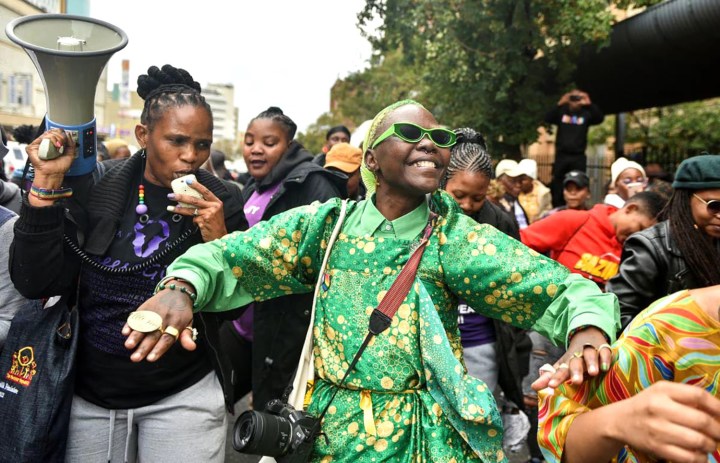
Papa De is an African queer photographer who is defying homophobia by capturing the resilience of the LGBTQ+ community through their lens while highlighting the challenges they face and their urgent need for support and protection.
In a world where fear and persecution cast a long shadow over the lives of LGBTQ+ individuals, DeLovie Kwagala, better known as Papa De, discovered a lifeline through a simple camera at the age of 16. Their journey of self-discovery and representation began, unravelling stories often erased and censored by the media, particularly in Uganda.
Despite the challenges posed by a lack of representation and deeply entrenched homophobia, Papa De’s passion for photography ignited a quest to capture the narratives hidden beneath their LGBTQ+ community.
Papa De borrowed a camera for two months, allowing them to delve deeply into the art of photography. With an insatiable hunger for knowledge, they taught themselves to operate a camera and embarked on a quest to capture every facet of life around them.
The resulting photographs held a mystique, with people’s countenances resonating profoundly, beckoning the artist to uncover the narratives hidden beneath the LGBTQ people who made up their community.
However, the camera had to be returned to the original owner, leaving behind an overwhelming void to explore their new-found passion.
Undeterred, Papa De made a solemn promise to acquire their own camera someday and to master the art of photography to tell stories. The photography industry, marred by a lack of representation, demoralised them.
Women photographers were nowhere to be found, let alone queer ones.
Homophobia has deep historical roots in Uganda, with the country’s colonial past playing a significant role.
During British colonial rule, laws criminalising homosexuality were introduced, and these laws remained in place after Uganda gained independence in 1962. However, the intensity of homophobia escalated in the 21st century, largely fuelled by right-wing American organisations such as Family Watch, religious leaders and politicians trying to gather votes from ordinary homophobic citizens ahead of elections.
In the early 2000s, conservative religious leaders, particularly evangelical Christians, began actively promoting anti-gay sentiments, labelling homosexuality as “un-African” and a threat to traditional family values.
The anti-homosexuality law was first introduced in 2009, seeking to criminalise same-sex relationships further, and included provisions for the death penalty in certain cases.
The bill was signed into law in 2014, then returned to parliament on a technicality and was eventually signed into law permanently as the Anti-Homosexuality Act last month by Ugandan President Yoweri Museveni, despite international criticism and threats of sanctions. The law exacerbates persecution and discrimination against LGBTQ+ people, and these are the conditions under which De has hopes of changing the narrative about their community.
Read more in Daily Maverick: What it’s like to be Ugandan and queer when your country turns against your identity
They eventually acquired a camera, which became their emancipating force in their journey of self-expression and the need to be validated as an African queer person who insists on embracing their gender identity and sexual orientation.
No longer confined by the shackles of conformity, they embarked on a journey of self-teaching, determined to master the art of photography and regain their freedom. Seeking a community that shared their struggles, they scoured the landscape for kindred spirits, using their camera to document their stories with dignity and respect.
Rejecting the stigmatisation and victimisation rampant in mainstream media, they yearned for a different narrative around African queer experiences.
“Visibility without protection is a death sentence. You’re haunted for being black and hunted for being queer. We are Africans, too … we should not be fighting for a right to exist,” they added.
This desire led them to found The Quingdom – In Transition, a series of photographs that celebrates queer bravery and authenticity, as well as an inclusive space. The photographs showcase the audacity of those who dare to show up boldly amidst hostility and oppression. They are a testament to our resilience in the face of injustice and oppression.
Through their lens, Papa De is shedding light on a reality marred by constant fear and persecution. De arrived in South Africa on a student visa, extending their stay through a research fellowship at the esteemed Market Photo Workshop.
Papa De is breaking barriers because it is illegal in Uganda for De to be taking photographs of queer people like this, bold and daring photographs, showing the world our beauty. As a visibly queer activist whose work is shared online, and who has recently starred in a queer reality show called Becoming, De challenges the stereotypes perpetuated by mainstream media, offering a portrayal of African queer stories that celebrate bravery and resilience rather than victimisation.
Under the Anti-Homosexuality Act, they could get up to 20 years imprisonment for promoting homosexuality, or for not reporting the queer Ugandans they have photographed to the police. Yet, they continue to quietly capture these stories because they want to show the resilience of the LGBTQ+ community. As a community that is shunned as evil and one to be annihilated, De sees the need to change the narrative about queer people as a matter of urgency.
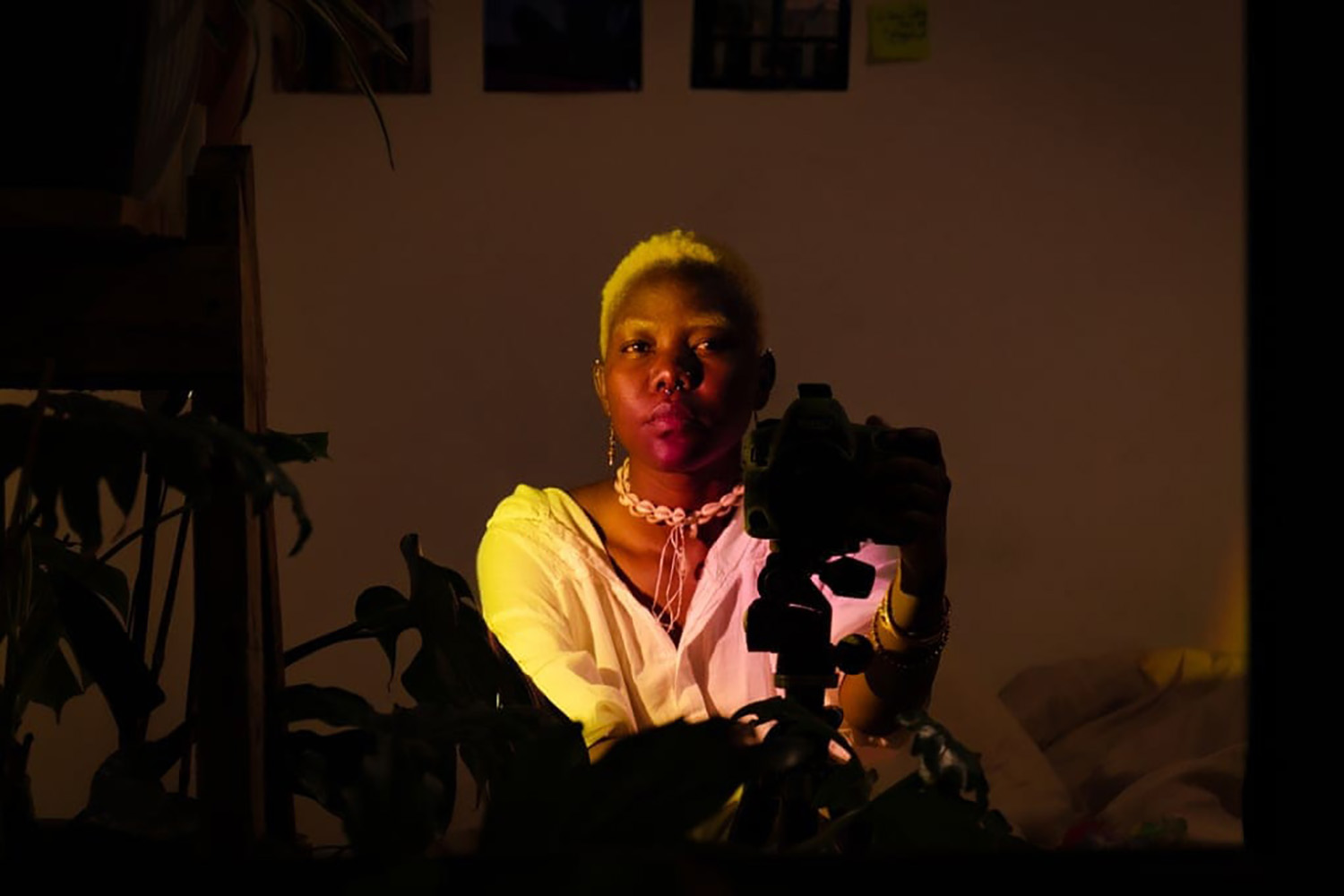
By turning the camera on to themselves and making themselves visible as a queer person, Papa De refuses to be erased and silenced. (Photo: DeLovie Kwagala – Papa De)
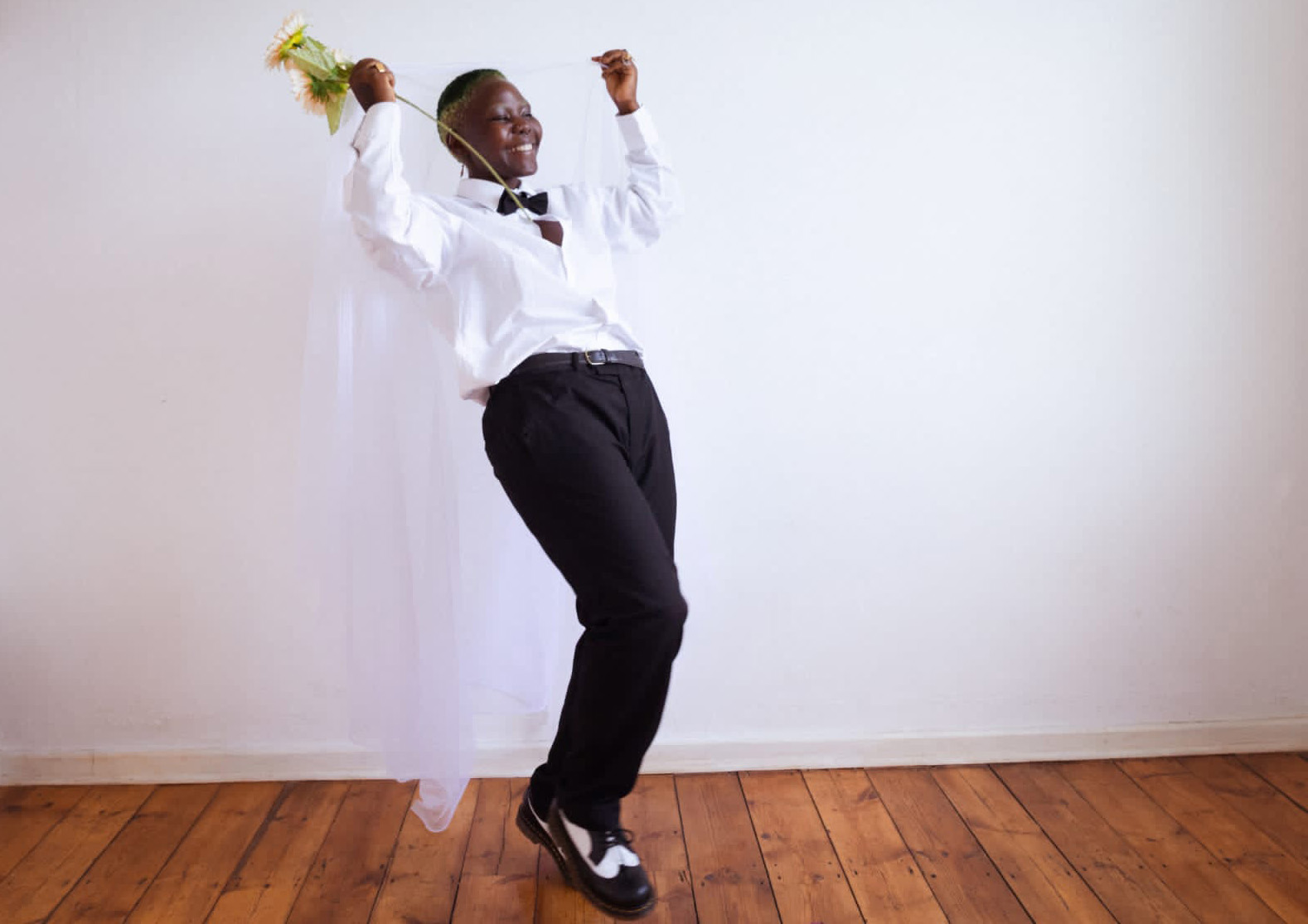
Papa De exudes joyfulness despite their gender identity and sexual orientation being a matter of life and death. (Photo: DeLovie Kwagala – Papa De)
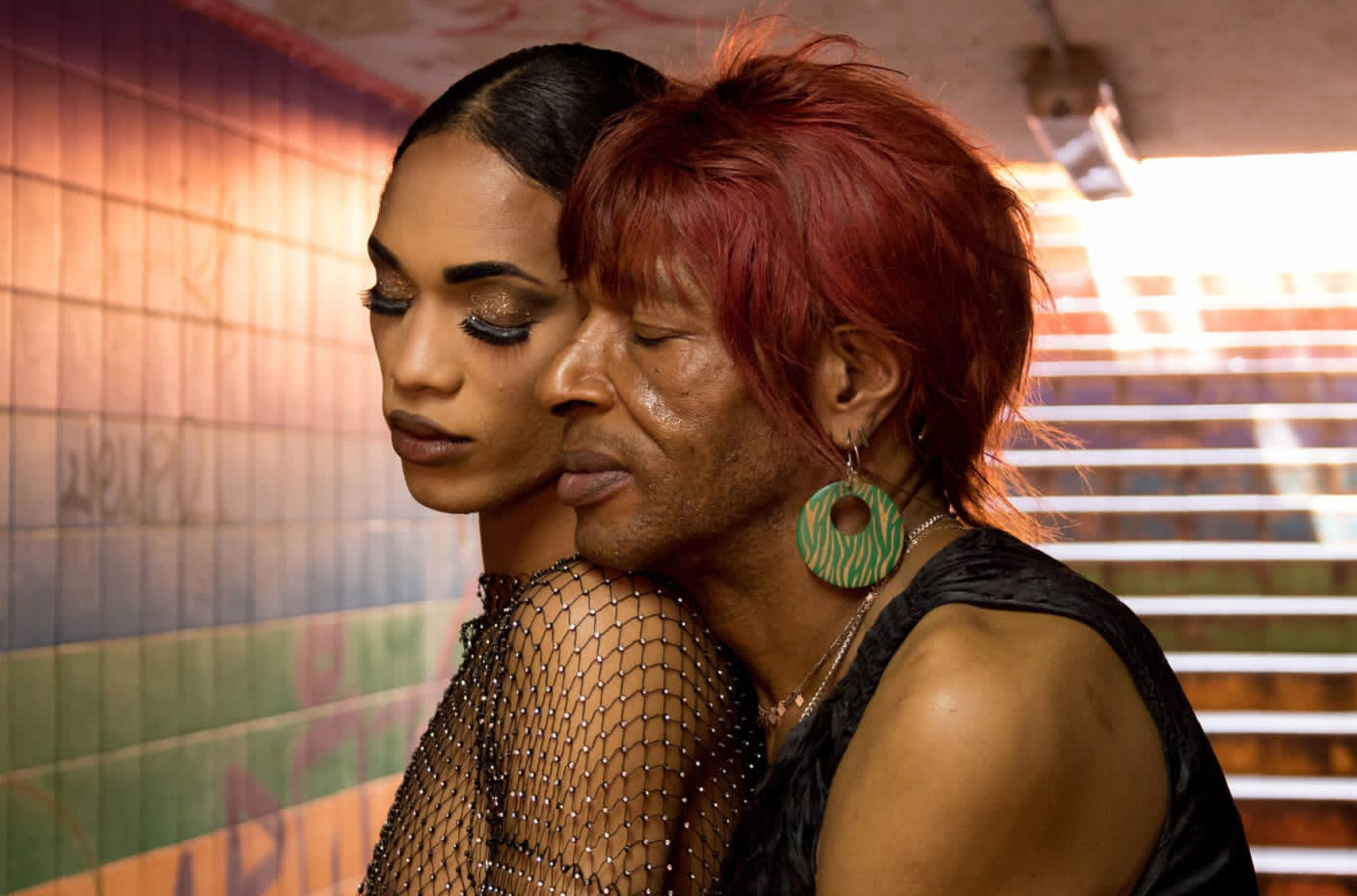
We want the freedom to love who we love, and be who we are, freely. This photograph shows that, and we are not asking for too much. (Photo: DeLovie Kwagala – Papa De)
Stories of resilience
I first met De on the eve of Zanele Muholi’s Faces and Phases opening at Stevens Gallery in Parktown North on 19 July 2019, which also happened to be my best friend’s and Muholi’s birthday. That day was also the opening night for The Lion King and we went to go watch it in Rosebank with other queer folk. My friend and I arrived at the gallery looking cute, as we generally do. I had my long braids with a bow, he had a leather jacket and his dewy face.
De saw us in our beauty and boldness and said how they would love to capture our beautiful and powerful queer selves on camera as part of their The Quingdom – In Transition series. During our shoot, they made it easy for me to be myself in front of their lens, and they were appreciative of the beauty and power of my feminine and masculine expressions, without a scornful gaze. It was a fun and collaborative shoot, helping each other tell our story of resilience.
While South Africa has portrayed itself as a beacon of hope for the queer community – being the first country in the world to explicitly and legally protect sexual minorities in its Constitution – the reality is far from ideal.
Though more progressive than many African countries, South Africa still grapples with deep-rooted prejudices such as xenophobia and gender-based violence, which includes violence towards LGBTQ people, especially lesbian women. However, the progressive reputation has seen countless individuals fleeing to South Africa, yearning for a life where they can embrace their true selves without fear of persecution. Sadly, they have not truly found the haven they hoped for here.
Returning to danger?
Shortly after the Anti-Homosexuality Bill was passed into law in May 2023, De learnt they had two weeks in South Africa before having to return to Uganda to renew their expired visa.
Queer people are not safe in Uganda, especially those who speak out against the atrocious law.
Many activists and visibly queer people are in grave danger and living in hiding. Trans people can’t access hormonal treatment or therapy but are only offered conversion therapy as an alternative to imprisonment.
Queer Ugandans are in danger of falling victim to mob hunts, as many ordinary citizens want to take the homophobic laws into their own hands. The safety and well-being of queer Ugandans are in grave danger.
De left their nine-year-old son, who identifies as queer, behind in South Africa and they are unable to reunite until their visa situation is resolved, which they tell me (if all goes well) could take six weeks to three months. The separation weighs heavily on them, forcing them to communicate cautiously and sparingly to protect their child from the dangers lurking within their homeland.
When De and their son applied for their South African visa, they made a collective family application. However, due to an unforeseen discrepancy, the child was granted an additional year. Now De has to ensure their child has access to school and aftercare and a safe place to stay. They are unable to get work and are scared of bringing their son along, who, according to the law on children who “commit the offence of homosexuality”, could face three years imprisonment.
They cannot apply for a visa to accompany their minor child and can’t extend their visa from South Africa unless they apply for a waiver, which could take up to a year. Their child is filled with fear and has said they are scared to even visit their grandmother in Uganda who – according to the new law – could be in trouble with the police for not reporting her child and grandchild to the police for being queer.
Although De has always created an affirming and supportive community of queer friends and allies, their son is now realising the depth of the hatred towards queer people outside their community and is shattered. The Anti-Homosexuality Act is tragically tearing families apart by criminalising the act of loving and accepting one’s queer child.
The current conditions in De’s visa prevent them from changing their legal status within the country, which means any visa extensions require a lengthy and uncertain process. Seeking asylum through the South African refugee system, while seemingly an option, presents its own challenges.
De says that the asylum system has proven to be nonfunctional, with an apparent five-year backlog built up during Covid. Some say it could take up to 10 years to be issued with a status. During the waiting period, you are not allowed to leave South Africa.
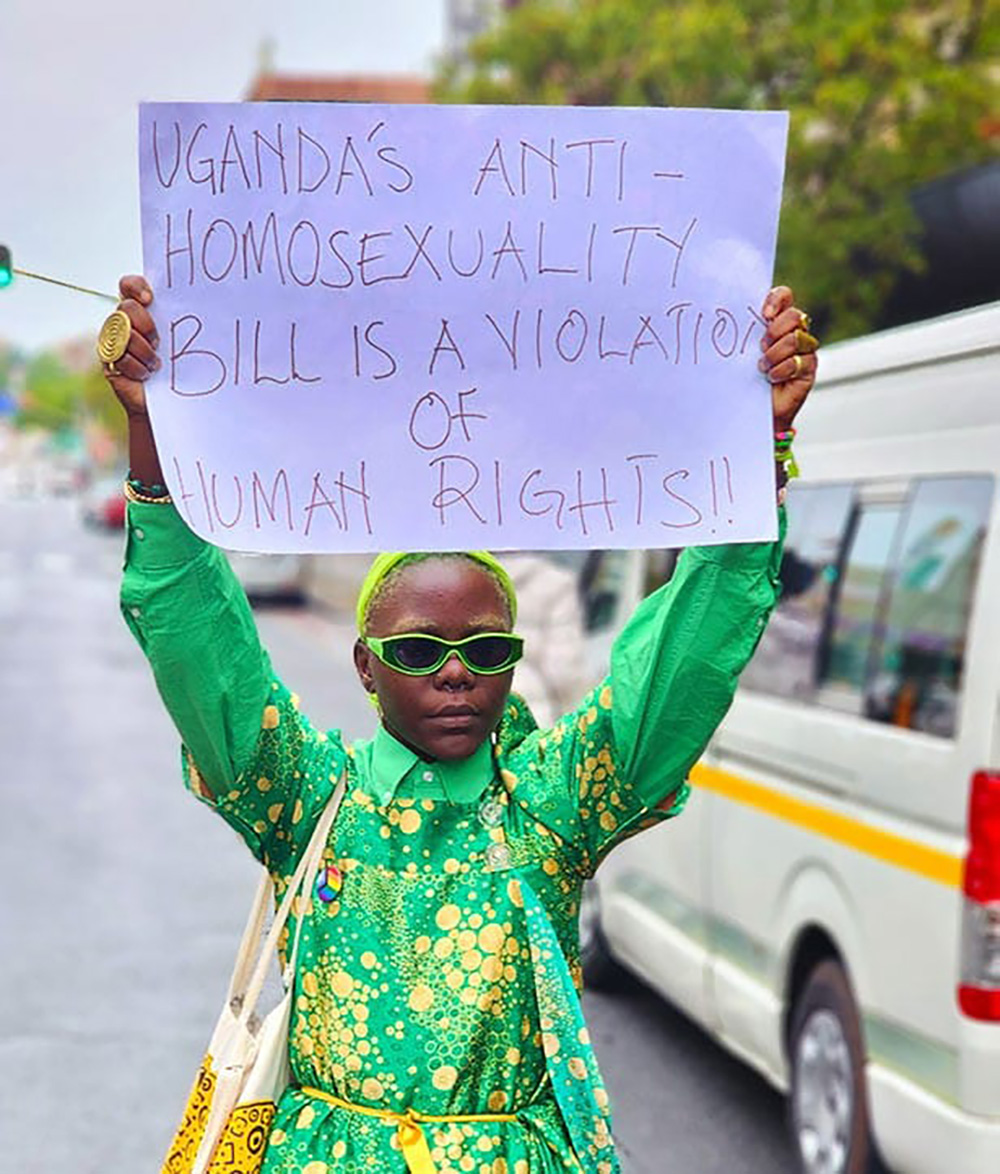
The anti-homosexuality law makes homosexuality punishable by death, and has been condemned by the United Nations as an egregious violation of human rights. Papa De makes their stance loud and clear. (Photo: DeLovie Kwagala – Papa De)
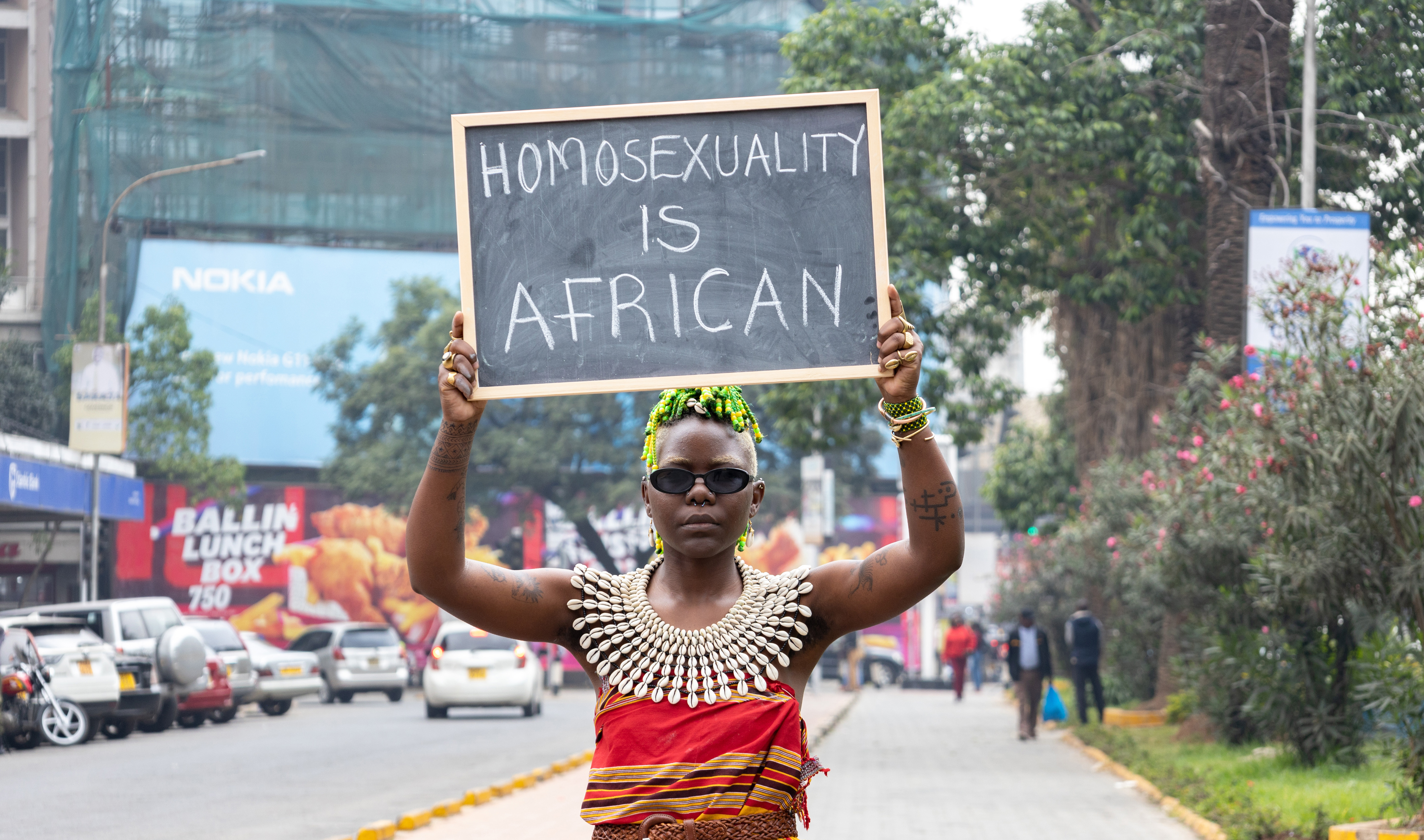
LGBTQ people have existed on the content and were accepted in many tribes long before the colonisers came with their laws. Homophobia is un-African. (Photo: DeLovie Kwagala – Papa De)
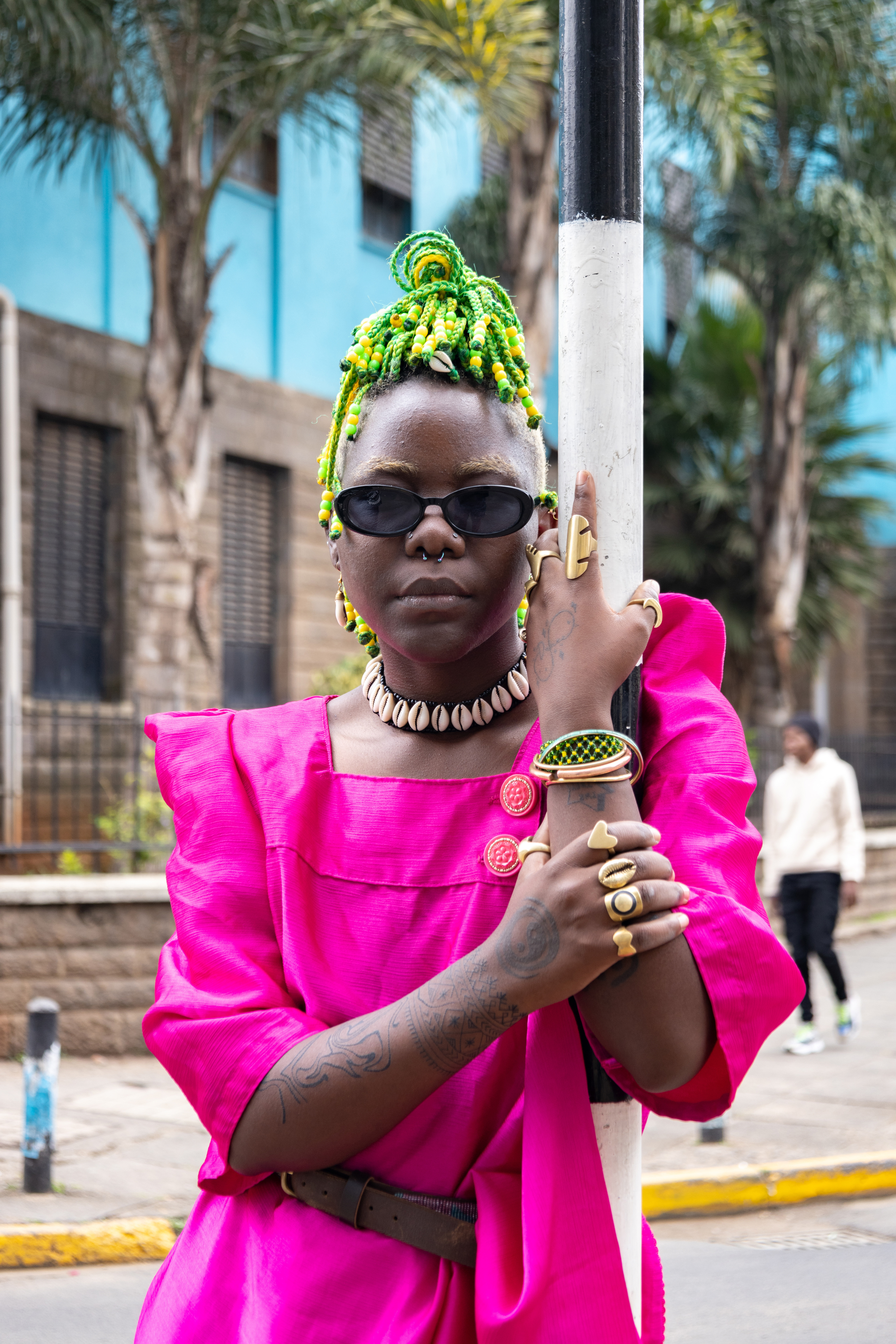
A world that inhibits people from being their best, most honest versions of themselves is a sad and unjust world. The right to be yourself is a human right. (Photo: DeLovie Kwagala – Papa De)
Situation getting worse in Uganda
Since the bill was passed into law, there’s been an influx of homelessness in Uganda and a lack of access to medication as more and more people have gone into hiding. The government’s promotion of misinformation and discrimination has labelled HIV/Aids as a gay disease. These efforts and the mandatory conversion therapy further exacerbate the situation and threaten to undo the progress made in raising awareness about HIV and Aids.
Even the ones who have been speaking out against the government can no longer afford to do so because they become targets within their families and communities. In many areas, people are being beaten, attacked and arrested on suspicions of being queer. Homeless shelters for LGBTQ people are no longer an option because property owners could also get into trouble for leasing their land to LGBTQ people.
In Kenya, where queer Ugandans can go without a visa, there is oppressive legislation that targets the LGBTQ+ community. Here, the asylum system, meant to provide refuge, only perpetuates the cycle of discrimination. Upon registering as a refugee, individuals are confined to camps — a grim reality that echoes the darkest chapters of human history. Within these camps, homophobia thrives, suffocating any hope for a safe and inclusive environment.
Kakuma Refugee Camp and the Dadaab Refugee Complex, designed as temporary shelters for refugees from all walks of life, fail to provide the sanctuary that queer individuals desperately need. Instead, they become trapped once again alongside the very people they were fleeing from. Tragically, reports have emerged of queer refugees facing unspeakable violence, including the harrowing accounts of queer individuals who were burned alive.
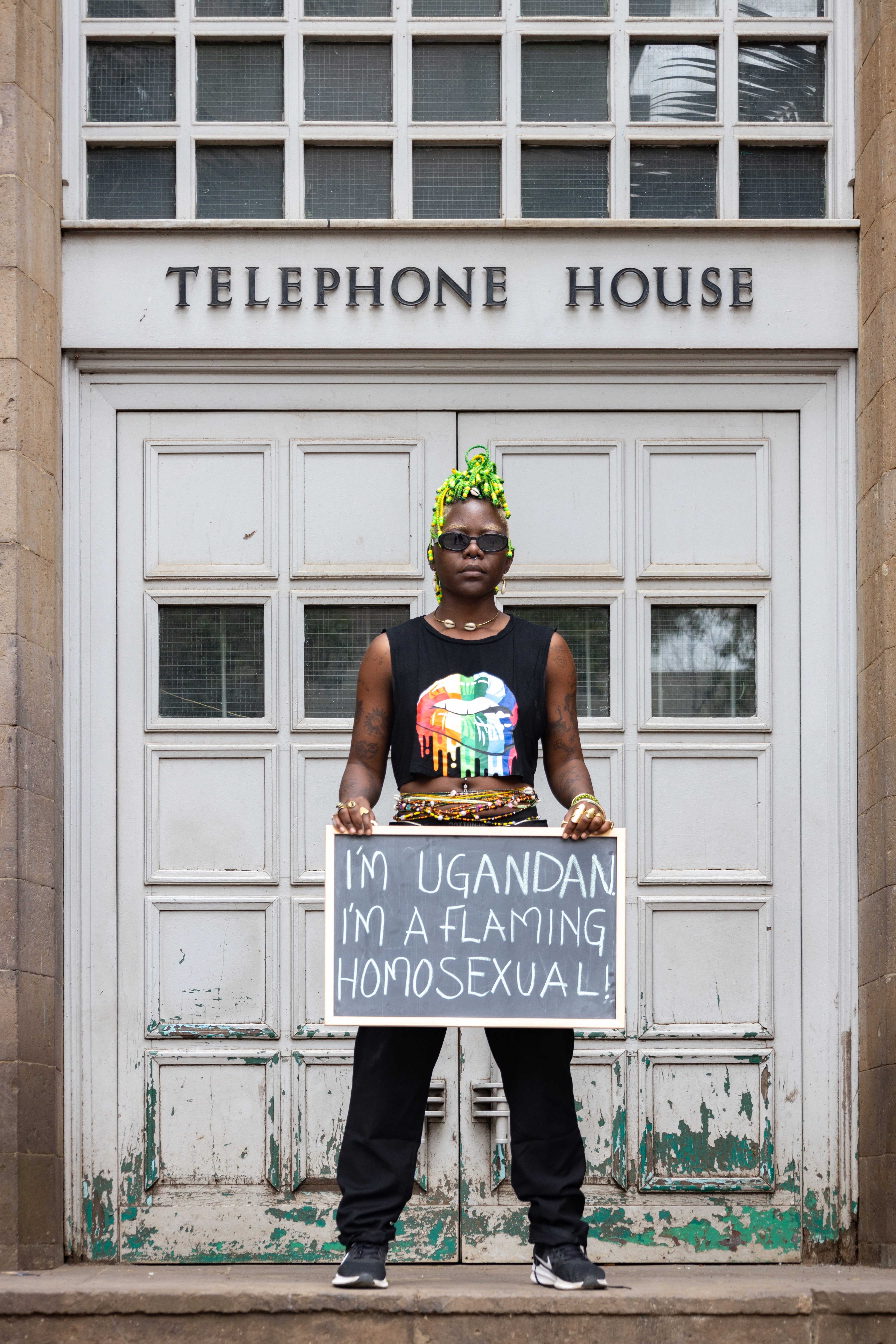
‘Coming out’ is important because it places a human face on being queer, even as it comes with the dangers of being targeted and attacked. If we don’t assert ourselves, no one else will do it for us. (Photo: DeLovie Kwagala – Papa De)
Read more here: LGBTQ+ refugees fleeing persecution beaten, raped & killed at notorious Kakuma camp – LGBTQ Nation
“Imagine not having to return to ever visit your family because of a law that criminalises your existence,” said Papa De.
“Imagine always watching your back to see if someone is watching you or targeting you.
“Imagine always having to think if you are next.
“Imagine leaving the house and always wondering if you will be coming back or if the police are going to get you.
“Imagine living in that fear.
“Imagine living in isolation because you are afraid to go out.
“Imagine not having your medication and going into psychological shit because you cannot access your medication, and the only thing the government is offering you is mandatory conversion therapy.”
Amidst the hostile environment, Papa De has not allowed fear to silence their voice. Partnering with organisations such as Queerwell in South Africa and the Taala Foundation in Uganda, they work to provide mental health support to LGBTQ+ individuals across geographic barriers.
Additionally, they are spearheading an initiative to establish a safe house, offering shelter and skills training for those urgently seeking to escape the grave dangers they face.
They are also raising funds to offer emergency relief to LGBTQ Ugandans who need urgent help. Papa De has raised 50,000 euros and the funds have gone to more than 130 individuals towards emergency accommodation, transportation to flee to safer areas, medical bills and bail in some cases.
They have had to alter their appearance drastically, shedding their former self to blend into the background.
“Have you ever packed for a trip and left your entire identity, personality and life behind for your safety… so that you can continue to speak out for the right thing and what you believe is right even when there is great danger awaiting you?
“In Uganda, there isn’t that much freedom of speech to speak up for your rights… they will teargas you and beat you up. Everyone has advised me against activism because it’s so dangerous, but until when?
“Until when are we going to be hiding?
“Until when are we not going to be able to speak up about our realities? A lot of people are already silenced and feel that they can’t speak up. Visibility without protection is a death sentence, and so is being black and queer. You’re haunted for being black and hunted for being queer. We are Africans too… we should not be fighting for a right to exist,” they added.
Visibility, for them, is not only a means of survival but also a profound act of defiance. Though in hiding, their presence is felt, and their work inspires others to stand up, speak out and fight for a future where our identity is not a death sentence.
Their courage, resilience and unwavering determination to shed light on the truth are beacons of hope amidst a sea of hatred and darkness.
Stand in solidarity with Uganda and speak out against the hatred towards LGBTQ people. DM/MC
Support queer Ugandans by donating to the Uganda LGBTQ Emergency Fund, buying prints from the Black Queer Emergency Print Sale or making a donation directly to Papa De’s PayPal.





















 Become an Insider
Become an Insider
Comments - Please login in order to comment.